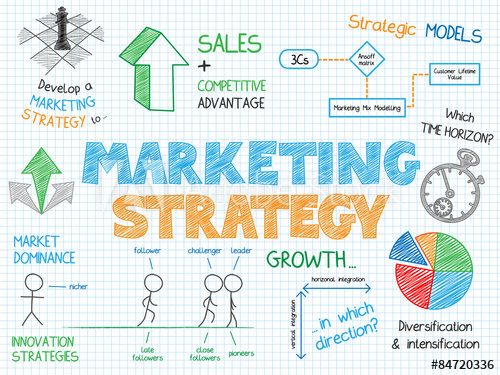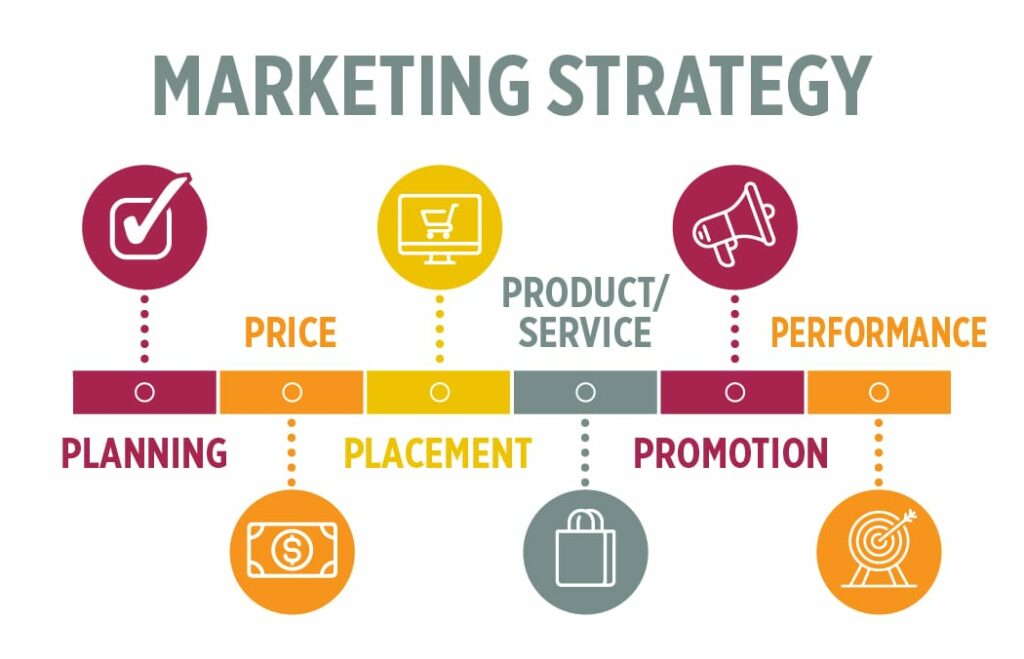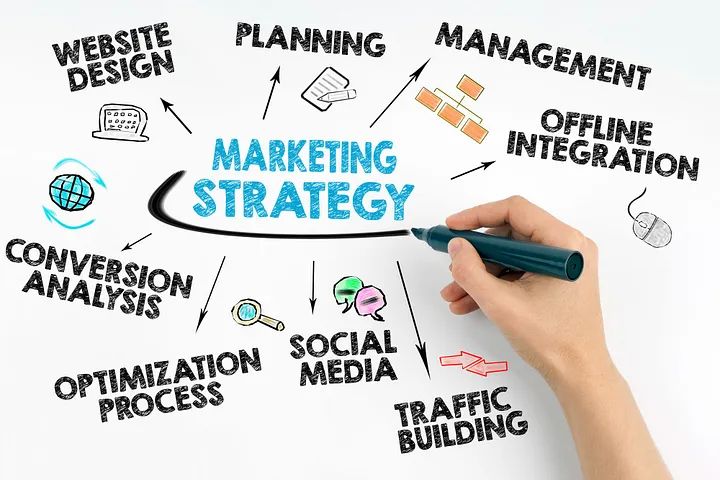
Marketing Strategy in Gastronomy, Hospitality and Food Products

Marketing Strategy in Gastronomy – Marketing Strategy Infographic
The Marketing Strategy
. marketing strategy refers to a business's overall plan of action to reach and persuade its target audience to buy its products or services.
It involves planning and executing activities aimed at achieving specific marketing objectives within a defined time frame. A well defined marketing strategy is vital to guide a company in its efforts to effectively promote and sell its products or services (or to develop NEW PRODUCTS / NEW SERVICES).
The key elements of a marketing strategy typically include:
1. Marketing Objectives (goal / purpose): setting specific and measurable goals that the business wishes to achieve.
2. Target market: identifying and understanding the specific audience or market segment that the business aims to reach with its products or services.
3. Competition analysis: evaluating the strengths and weaknesses of competitors and understanding the market conditions in which the company operates.
4. Unique selling proposition(USP): defining the unique qualities or characteristics that distinguish the company's products or services from those of competitors.
5. Marketing mix:

Marketing Strategy in gastronomy - Marketing Strategy
• Product: deciding on the features, design and functionality of the product or service.
• Price: determining the pricing strategy, taking into account factors such as cost, competition and perceived value.
• Inside: defining the distribution channels through which the product or service will be made available to customers.
• Promotion: planning promotional activities, including advertising, public relations and sales promotions.
6. Channels of distribution: choosing the most effective and efficient ways to deliver products or services to the target audience.
7. Marketing budget: allocation of financial resources to various marketing activities to ensure a balanced and effective campaign.
8. Performance metrics and records: defining key performance indicators (KPIs – Key Performance Indicators) and methods for measuring the success of marketing efforts.
A successful one marketing strategy it usually is dynamic and adaptable, taking into account changes in market conditions, consumer behavior and the competitive landscape. It serves as a road map for the company's marketing efforts, providing a framework for decision making and resource allocation.

Gastronomic Marketing - Strategic Marketing, Heraklion Crete
A video with ideas for creating a successful Marketing Strategy plan
VIDEO – Marketing Strategy
key features of a successful Marketing Strategy plan
— — — — — — — — — — — — — –
Butterfly Stories Advertising Company (Heraklion Crete):
the Butterfly Stories Food Management and Hospitality Consultants is an experienced and award-winning pioneering company for strategy, marketing and advertising specializing in comprehensive provision advertising display and management services on social networks (facebook – instagram), especially in her field focus (restaurants, patisseries, bakeries, cafes, bistros), hospitality (hotels) and food products.
SEE MORE – Strategic Marketing Services in Gastronomy:
Marketing and Branding Strategy in Gastronomy, Hospitality and Food Products
Want to increase your business visibility and sales? Our services Strategic Marketing in Gastronomy is the ideal choice. Contact us today! Learn how we can help your business increase sales and visibility by creating a business plan Strategic Marketing.
#strategy-marketing #marketing-strategy

Marketing Strategy in gastronomy - Marketing Strategy
See also:
Business Strategy & Marketing Strategy – key concepts of strategy through thematic modules, such as strategic environment analysis, corporate mission, strategy formulation, implementation and evaluation
Marketing strategy: What it is and why it's worth implementing – why Marketing Strategy is so important for the success of your business
Marketing Strategy in Social Networks – social media marketing – Social Media Marketing (SMM — Social Media Marketing) is a form of online, digital marketing (Digital Marketing) that uses social media applications as a marketing tool.
SOLUTIONS FOR HOTELS AND COMPANIES IN THE CATERING & NUTRITION SECTOR
KEEP EXPLORING












